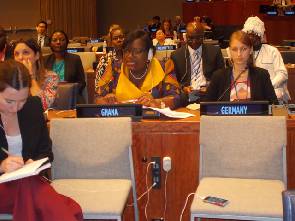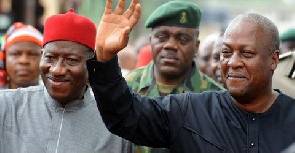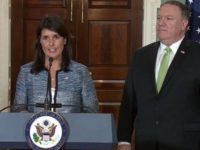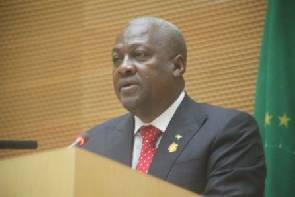 Ghana has endorsed efforts by the United Nations (UN) to develop appropriate legal frameworks and tools to effectively address gaps and challenges faced by older persons.
Ghana has endorsed efforts by the United Nations (UN) to develop appropriate legal frameworks and tools to effectively address gaps and challenges faced by older persons.
According to the Minister for Gender, Children and Social Protection, Nana Oye Lithur, the government was in support of the comprehensive approach and leading role adopted by the UN, and the continuous efforts of the international community to ensure a binding legal framework for the aged.
The minister made the statement at the ongoing Sixth Session of the Open-Ended Working Group on Ageing (OEWGA) at the headquarters of the United Nations in New York.
The session will consider the existing international framework on the human rights and dignity of older persons; identify possible gaps and how best to address them, including the feasibility of other instruments and measures.
The Sixth OEWGA is chaired by Mateo Estreme, Deputy Permanent Representative.
The programme is being attended by delegates from 52 UN countries and representatives of civil society organisations from across the world.
Delivering Ghana’s statement at the session, Nana Oye proposed that specific international standards on older persons’ rights must ensure the prohibition of all forms of discrimination against them.
Ghana, she said, proposed for the elimination of all barriers that prevented older persons from enjoying their rights on an equal basis with others and enhancing the legal capacity of older persons, including the provision of legal support, to enable them to exercise their rights on an equal basis with others.
“We propose the elimination of all barriers to the right of personal mobility of older persons, including full access to affordable and safe transport on an equal basis with others, and mobility aids and devices”, she stated.
Again, she pushed for the protection of the aged, especially older women, from all forms of violence and abuse, including harmful traditional practices, any form of torture, expulsion from the home and any inhuman and degrading treatment. They should also have the right to social security and social protection.
Outlining some gains made for the aged in Ghana so far, Nana Oye said about 5,000 old people have been registered freely with the National Health Insurance Scheme (NHIS), while out of a total of 90,785 households on the Livelihood Empowerment Against Poverty (LEAP) programme, 46 per cent of the beneficiaries are elderly.
She also said in January, Ghana launched the ‘Eban’ Elderly Welfare Card Programme, an initiative to provide priority access to health, transportation and other services.
“The programme seeks to use the social safety net to ensure the elderly live in dignity. Under the programme older persons receive 50 per cent discount on public transport fares to any destination in Ghana”, she said, adding that they also received priority access to services at the hospitals, banks, transport terminals and other social services that older persons might require.
Nana Oye said 25,000 elderly persons were expected to be rolled onto the programme nationwide this year.
A memorandum of understanding (MOU), she hinted, had also been signed between Ghana and the Aahus Social Health Care College of Denmark to support the introduction and mainstreaming of geriatrics at the various health training schools in Ghana, as well as the health-care delivery system.
She also told the group, “A witch camp which had 70 per cent of its inmates being older women aged 70 years and above was recently closed down and the inmates reintegrated into society.”





